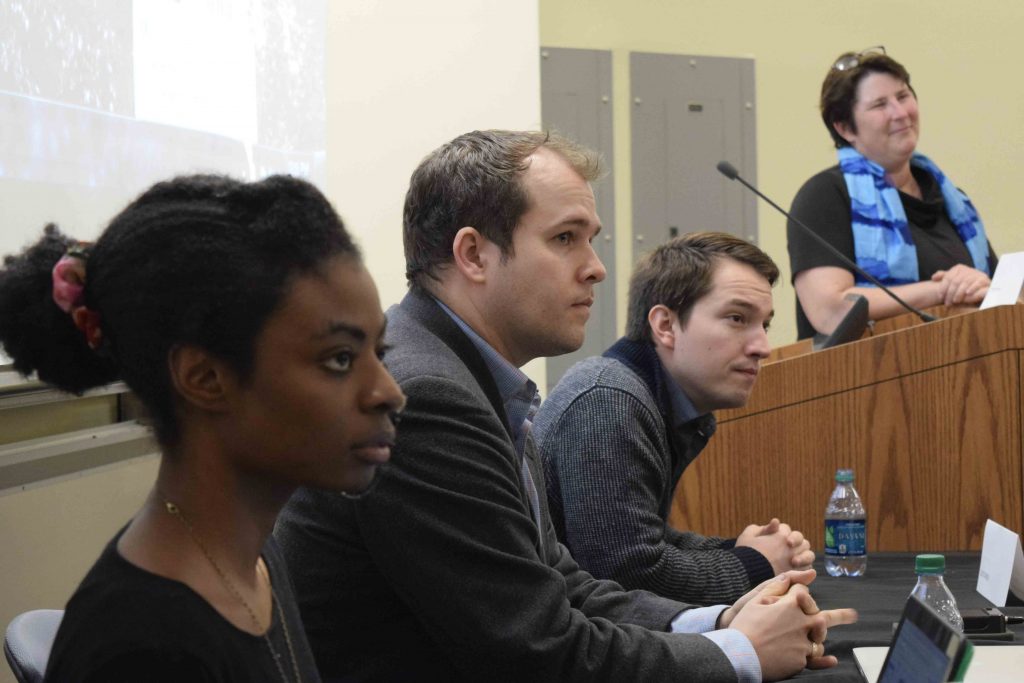“This is my dream panel,” adjunct professor Sayoko Blodgett-Ford told the assembled crowd as she opened the “Mobile Apps: Innovation and Entrepreneurship” discussion at BC Law on April 17. The event was hosted by the the Law School’s Program on Innovation and Entrepreneurship (PIE), which launched at BC Law last fall, and featured Elliott Schrock, founder and lead developer at Thryv, Inc.; William Palin, the Access to Justice/Technology Fellow at Harvard Law School; and Charity Everett, a New York IDEALab resident and creator of Go Back Fetch It.
The panelists discussed their range of experience with mobile app development and other entrepreneurial projects, as well as legal issues that have arisen during their ventures.
“It’s so exciting to be able to pull out my phone and just show people what I’m working on,” Schrock said, reflecting on his first experiment in college where he developed an app that prevented drunk texting. Schrock cautioned students about getting linked with investors who choose flash over substance, noting that successful start-ups often begin “in a tiny place, with no windows, and everyone clustered around one desk. Don’t be afraid to get into a market, but don’t go into entrepreneurship to make money. Do this because there’s a problem you want to solve,” he continued.
Palin, Harvard’s first-ever Access to Justice/Technology Fellow, spoke about ways app developers are working with lawyers to improve access to legal services. “When I was a junior associate, I started creating software that solved my problems at work, and started sharing it with other attorneys,” said Palin, who learned to program after law school to create an app that drafted healthcare proxy documents. Leaning on that experience, Palin now works with 29 clinics and student practice organizations at Harvard Law to build mobile applications that make it easier to work with, and educate, legal clients. “A lot of this is experimenting and testing,” Palin said. “We get an idea, develop it, put it in the hands of our clinicians, and see if we can make a difference.”
Everett closed the panel by introducing her augmented reality creation Go Back Fetch It, and stressing the need for developers to consider accessibility. “There’s an echo chamber in the industry when engineers are racing to create the flashiest and most technologically advanced products,” she said, “but if you’re developing products that only work on the latest version of the iPhone, then you’re leaving out 98 percent of people.”
Everett encouraged developers, investors, and lawyers to deconstruct technology and make the process easier for artists and amateurs to get involved. “You have to lead by example and purposefully buck trends,” she said, “unless you want your entire world to look like it was built by engineers.”
For more information about BC Law’s Program on Innovation and Entrepreneurship click here, or read the BC News story about PIE’s first year here.
Photo, from left: Charity Everett, William Palin, Elliott Schrock, and Sayoko Blodgett-Ford


